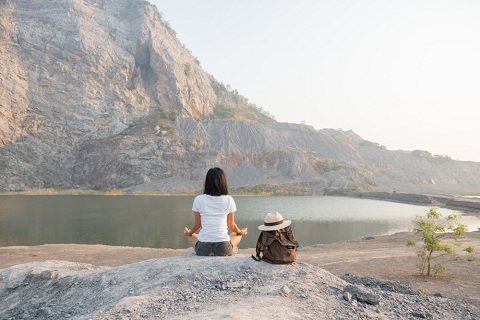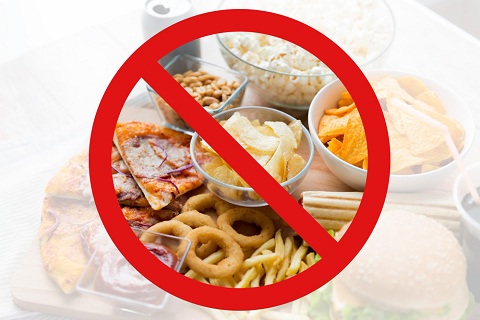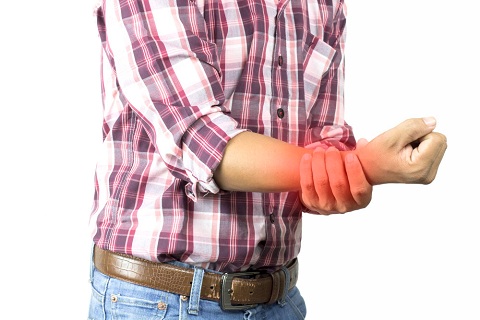In our modern, fast-paced world, touring has emerged not just as a recreational activity but also as a powerful tool for mental health enhancement. This comprehensive guide delves into the profound impact that touring can have on mental well-being, exploring its benefits, considerations, and practical tips for incorporating it into a holistic wellness regimen.
Understanding the Connection
The Therapeutic Power of Exploration
Touring encompasses a wide range of experiences, from leisurely travel to adventurous expeditions. Regardless of the form it takes, touring shares a common thread: the opportunity for individuals to step out of their daily routines, explore new environments, and engage in novel activities. This break from the familiar can stimulate the brain, ignite creativity, and foster a sense of excitement and wonder.
Stress Reduction and Relaxation
One of the most significant benefits of touring for mental health is its ability to reduce stress and promote relaxation with peaceful sleep. Immersing oneself in new surroundings, away from the pressures of work or home life, allows for mental and emotional rejuvenation. The scenic beauty, cultural experiences, and leisurely pace of touring contribute to a sense of calm and tranquility.
Social Connection and Community
Touring often involves interactions with others, whether fellow travelers, local residents, or tour guides. These social connections can combat feelings of loneliness and isolation, promoting a sense of belonging and camaraderie. In many cases we are not comfortable talking to our neighbors but when we meet our neighbor while travelling somewhere we open up and freely chat, that makes our confident level higher. Shared experiences during touring create bonds and memories that contribute to overall well-being.
Practical Tips for Incorporating Touring into Mental Wellness
Choose Destinations Mindfully
When planning a touring experience for mental health benefits, consider destinations that align with your interests and preferences. Before travelling somewhere choose the right place it can be mountain, sea beach, ancient civilization place or historical place, plateau, shower, snow covered area, deseart, You have to choose in advance which place you will get peace of mind. Whether it’s exploring nature, delving into history, or indulging in culinary delights, tailor the trip to nurture your well-being.
Embrace Mindfulness and Presence
During touring, practice mindfulness by immersing yourself fully in the present moment. Engage your senses, observe the surroundings, and savor each experience without distractions. Mindful touring enhances appreciation and promotes relaxation.
Balance Activity and Rest
While touring can be exhilarating, it’s essential to strike a balance between activity and rest. Allow time for relaxation, reflection, and rejuvenation amidst exploration. Listen to your body’s needs and pace yourself accordingly.
Connect with Nature
Nature has a profound impact on mental health, offering tranquility and healing properties. Incorporate touring activities that immerse you in natural settings, such as hiking trails, beach walks, or scenic drives. Nature’s beauty can uplift mood and reduce stress.
Cultivate Meaningful Experiences
Focus on creating meaningful touring experiences that align with your values and aspirations. Engage in activities that bring joy, fulfillment, and a sense of accomplishment. Whether it’s learning a new skill, volunteering, or connecting with local communities, meaningful touring fosters holistic well-being.
When Is the Best Time to Take a Tour for Mental Health?
The best time to take a tour for mental health depends on various factors, including individual preferences, schedules, and the type of tour planned. However, there are several considerations to keep in mind when determining the optimal timing for a mental health-focused tour:
- Seasonal Considerations: Consider the seasons and weather conditions of your desired destination. For example, if you enjoy outdoor activities and nature exploration, spring and autumn may offer pleasant weather without extreme temperatures.
- Personal Schedule: Take into account your personal schedule and commitments. Choose a time when you can fully immerse yourself in the tour experience without feeling rushed or stressed about other responsibilities.
- Work-Life Balance: Plan your tour during a period when you can take time off from work or responsibilities. A break from routine can be beneficial for mental relaxation and rejuvenation.
- Avoiding Peak Tourist Seasons: Depending on your preferences, you may want to avoid peak tourist seasons when popular destinations are crowded. Opting for off-peak times can provide a more serene and immersive experience.
- Consideration of Mental State: Assess your current mental state and stress levels. If you’re feeling overwhelmed or emotionally drained, scheduling a tour during a quieter period may be more beneficial for mental health recovery.
- Alignment with Personal Goals: Align the timing of your tour with your personal goals and objectives. If you’re seeking introspection and self-discovery, a quieter time with fewer distractions may be ideal.
- Availability of Support Services: If you require specific support services or accommodations during the tour, ensure that they are available and accessible during your chosen time frame.
FAQs related to touring for mental health
Yes, touring can be highly beneficial for mental health. It provides opportunities for relaxation, stress reduction, social connection, and exposure to new experiences, all of which contribute to overall well-being.
Tours that involve nature exploration, cultural immersion, wellness activities (such as yoga retreats or spa tours), and mindful travel experiences are often recommended for mental health benefits.
The frequency of mental health-focused tours varies depending on individual needs and preferences. Some may benefit from regular short getaways, while others may prefer occasional longer trips for deeper relaxation and rejuvenation.
Touring alone can have positive effects on mental well-being, as it allows for introspection, self-discovery, and independence. However, it’s essential to consider personal comfort levels and safety when traveling solo.
Certain destinations, such as wellness resorts, natural retreats, and mindfulness centers, are renowned for their mental health benefits. These locations often offer tailored experiences and services focused on relaxation, stress management, and holistic well-being.
The mental process of imagining oneself in past or future situations is commonly referred to as “mental time travel.” This term encompasses the ability of individuals to mentally project themselves backward in time to recall memories or forward in time to envision possible future scenarios. Mental time travel plays a crucial role in human cognition, as it allows individuals to reflect on past experiences, plan for the future, and develop a sense of self-continuity across time.
Conclusion
Touring plays a vital role in promoting mental health and overall well-being. Its therapeutic benefits, from stress reduction to social connection, make it a valuable addition to wellness practices. By incorporating mindful touring experiences, individuals can enhance their mental resilience, cultivate happiness, and embark on a journey of self-discovery.





